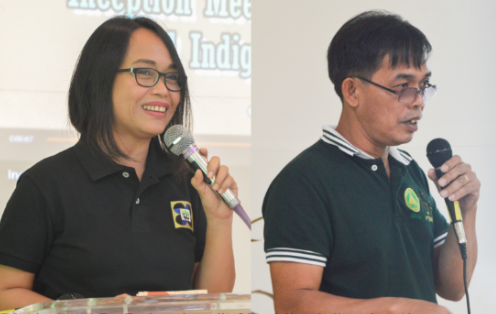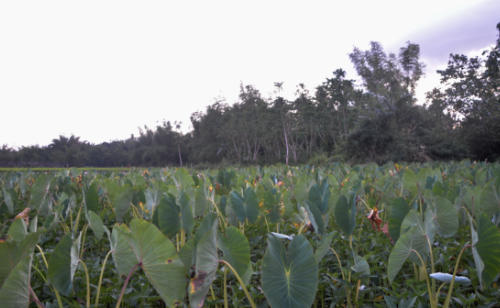Bicol is known for its distinct cuisines that have been perfected by using indigenous crops available in the region, such as taro. Taro leaves are used in many popular dishes such as ‘laing’ and ‘pinangat,’ and are also used in other agricultural products.
However, the production of taro in Bicol has declined since 2020 due to unoptimized cultural management, high incidence of pests and diseases, and high postharvest losses.
In hopes of revitalizing the industry of taro and indigenous crops in the region, the Philippine Council for Agriculture, Aquatic and Natural Resources Research and Development of the Department of Science and Technology (DOST-PCAARRD) launched the program, “Boosting the Taro Industry and Indigenous Crops of the Bicol Region,” in collaboration with the Central Bicol State University of Agriculture (CBSUA).
During the said activity, Dr. Allan B. Del Rosario, program leader, said that the program aims to enhance the production and management technologies of taro and increase the utilization of indigenous crops in the Bicol region through product development.
The collection of promising taro selections throughout the provinces of Bicol, which will later be evaluated in terms of the quality of their foliage and corm for product development, is one of the program’s essential components. These collections will be conserved in the germplasm facility of CBSUA and be used for future research and development (R&D) initiatives.

Dir. Leilani D. Pelegrina (left) while delivering the opening remarks and Program Leader Dr. Allan B. Del Rosario (right) presenting the targets and workplan of the program. (Image credit: Crops Research Division, DOST-PCAARRD)
Ms. Leilani D. Pelegrina, director of the Crops Research Division (CRD) of DOST-PCAARRD, expressed her appreciation to the CBSUA program team for their support to the taro industry in Region V and in initiating the program to address the issues of the industry.
Aside from promoting indigenous crops in the region, the program is also expected to develop information, education, and communication (IEC) materials highlighting accomplishments in improving cultural management, promising taro selections, and product development.
After a recently held inception meeting, Dr. Del Rosario assisted the DOST-PCAARRD team in visiting the experimental sites where taro germplasm will be reproduced and the processing facility where products made from taro and other indigenous crops will be developed and produced.

CBSUA experimental site where taro germplasm will be reproduced. (Image credit: Crops Research Division, DOST-PCAARRD)
The inception meeting was attended by the program team and administrative staff from CBSUA, and key CRD Staff led by Dir. Pelegrina, with Industry Strategic S&T Program (ISP) Manager for Vegetables Joel Norman R. Panganiban and Commodity Specialist for Rootcrops Abigail May O. Retuta.

